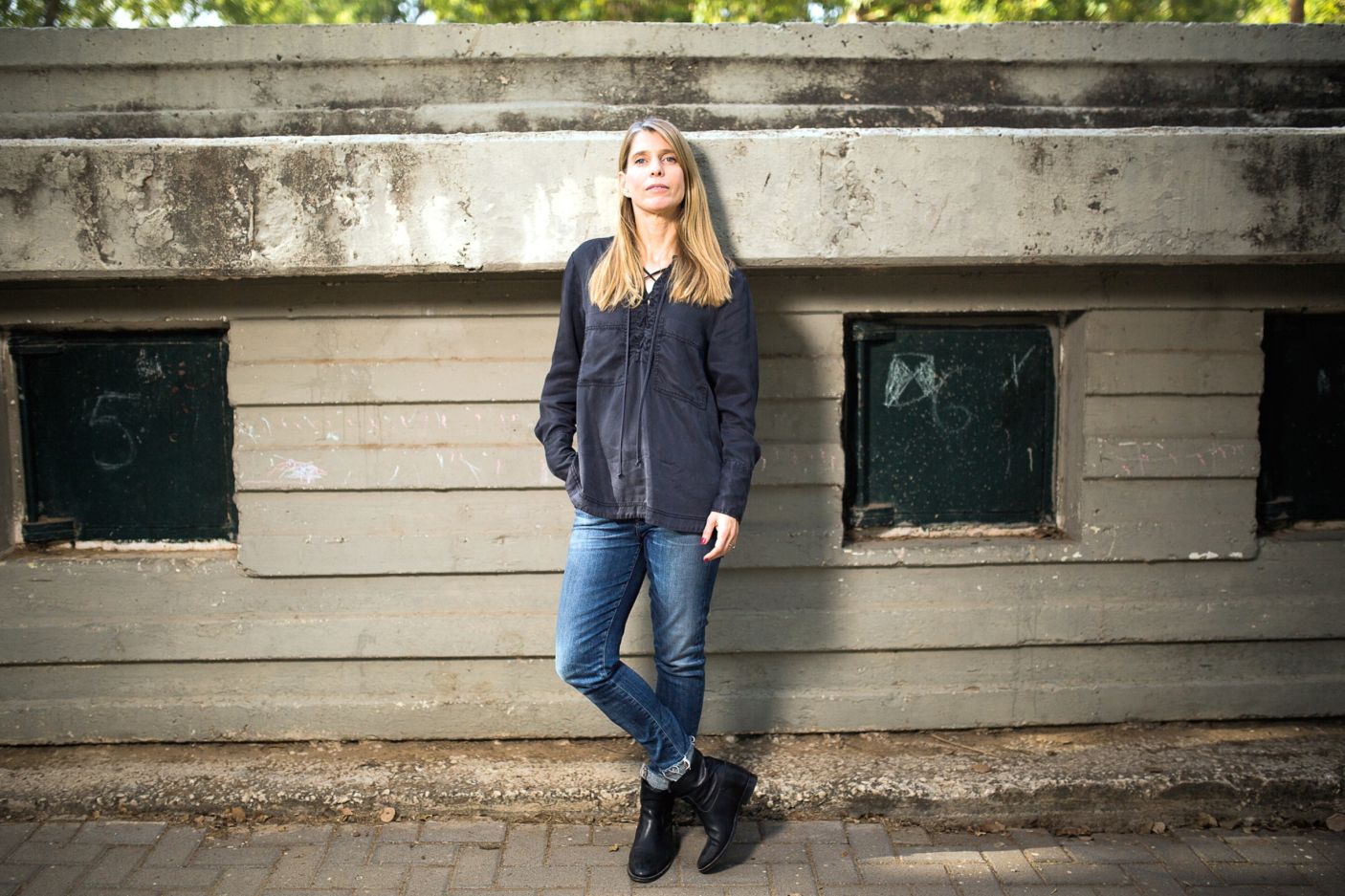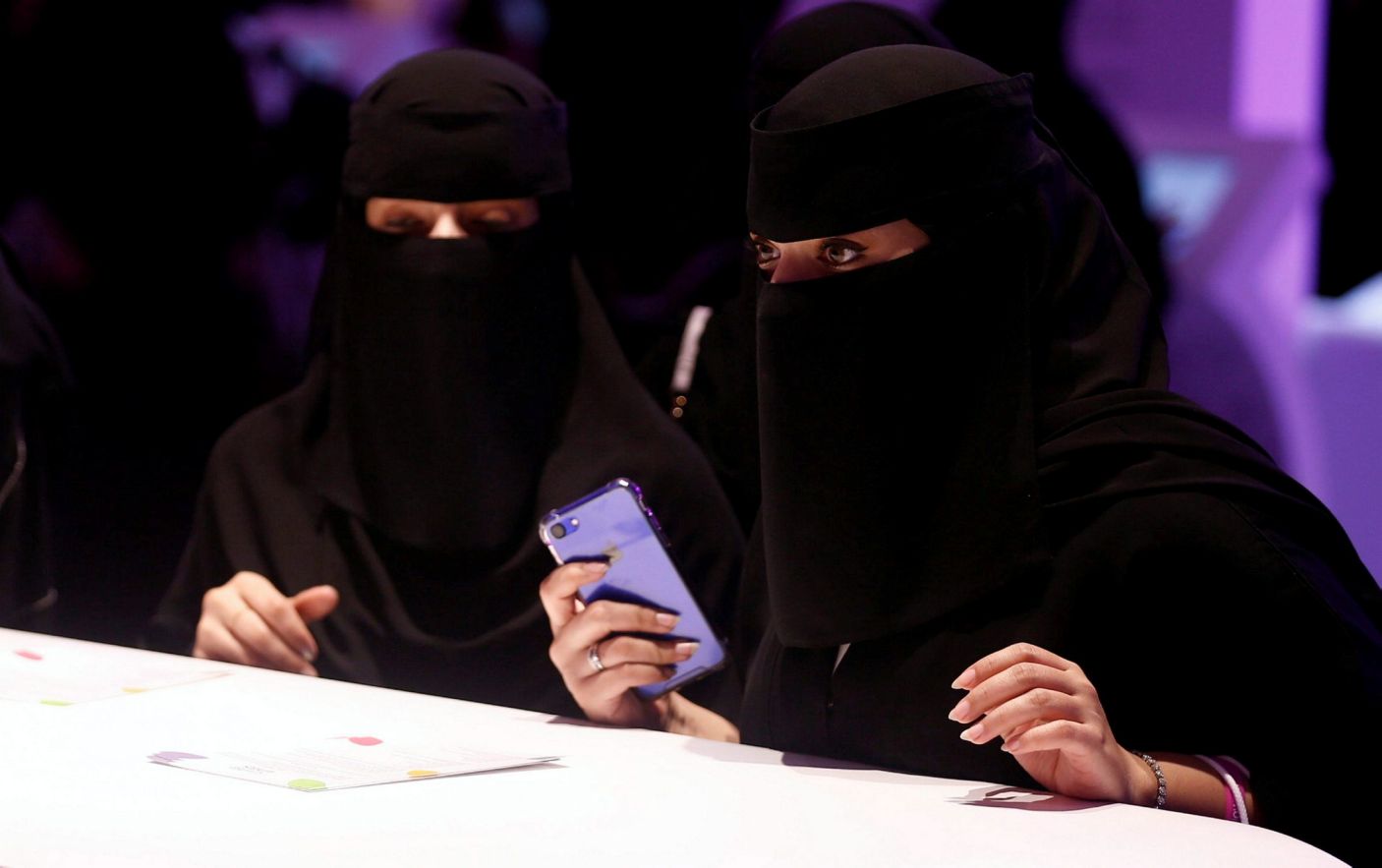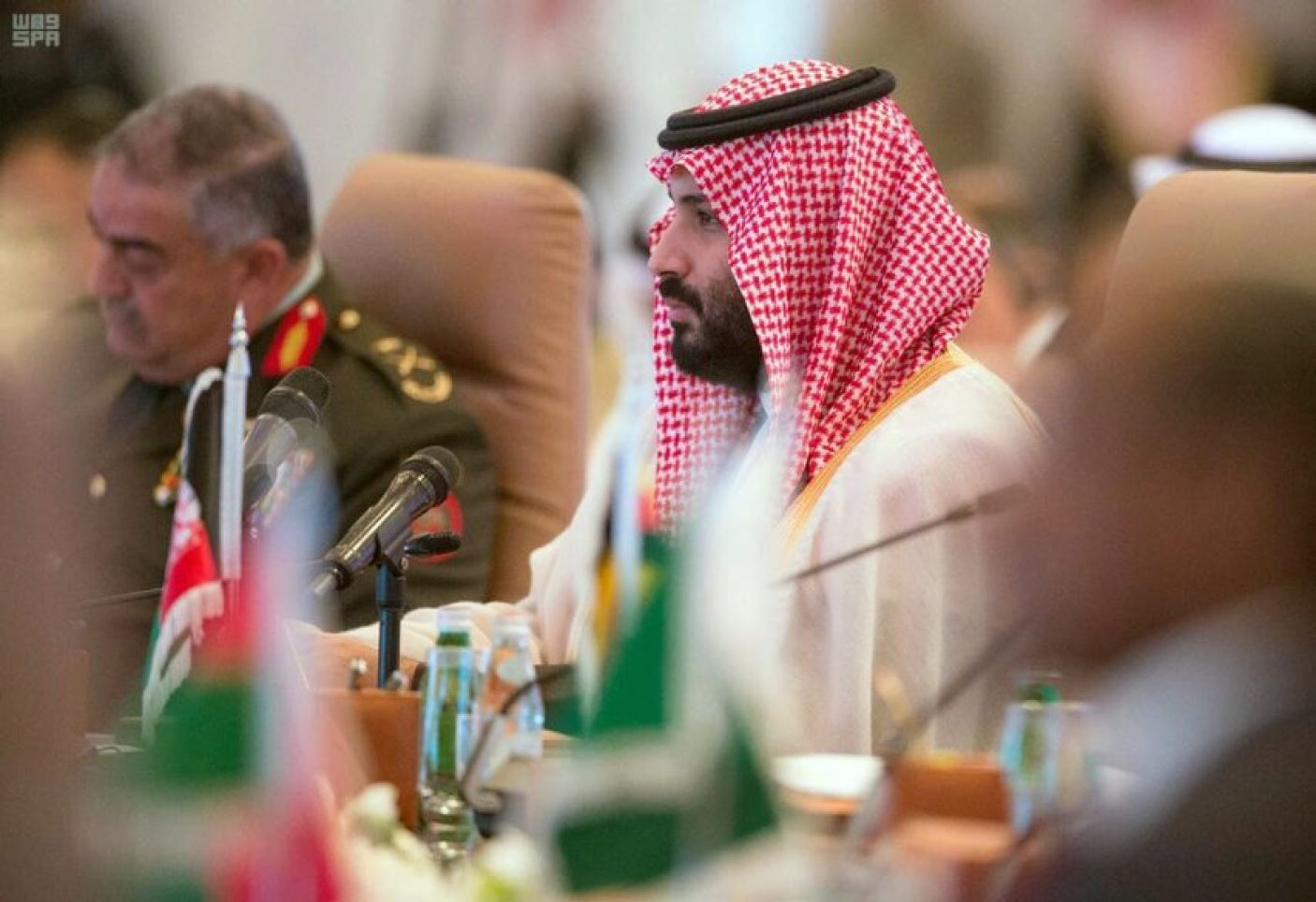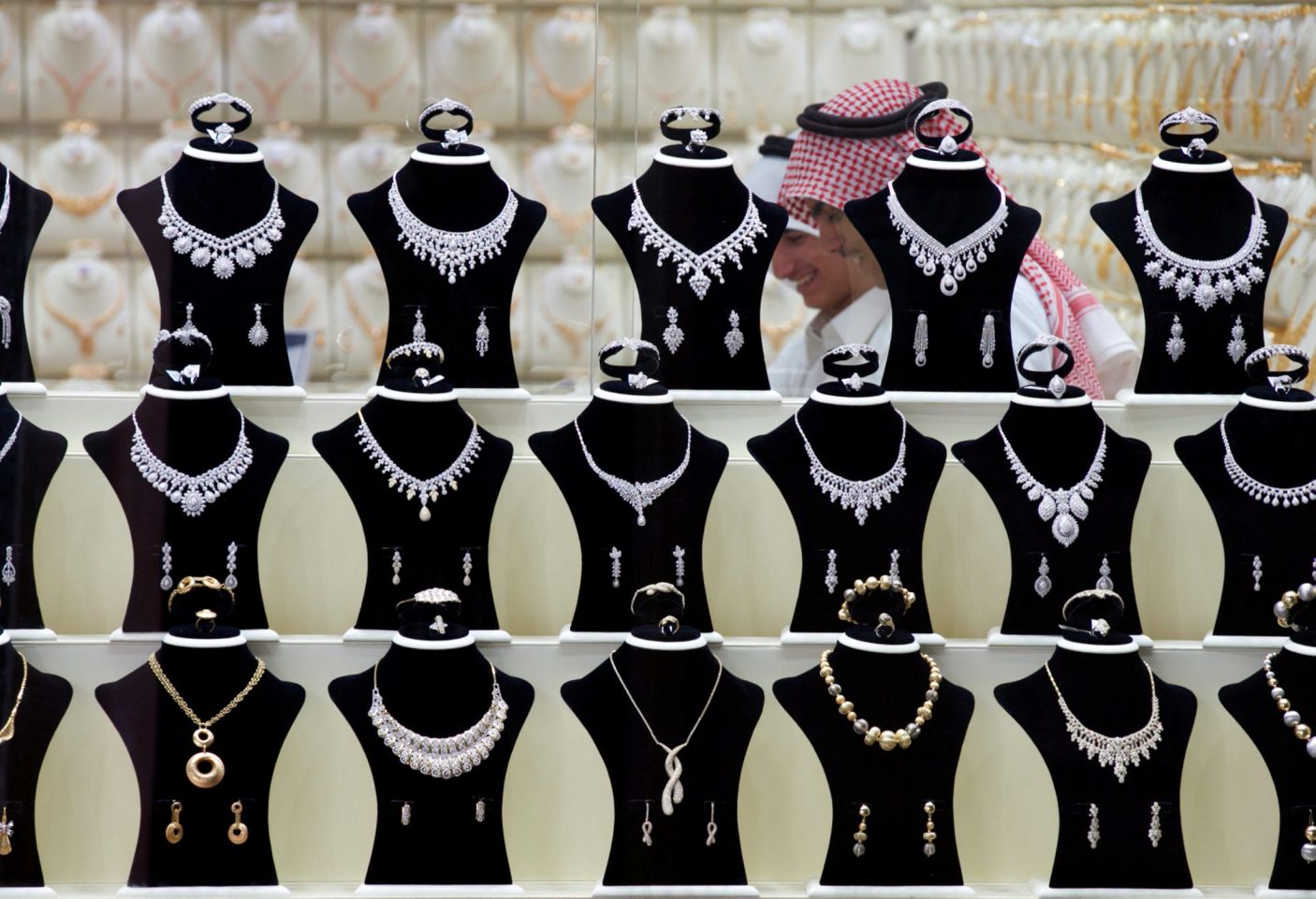Talking to: Dr. Michal Yaari, 43,
lives in Tel Aviv; researcher and expert on Saudi Arabia, teaches at Tel
Aviv University and the Open University.
Israel Defense Forces Chief of
Staff Gadi Eisenkot recently gave an unprecedented interview to a Saudi
news site, in which he asserted that Israel and Saudi Arabia are in full
agreement about Iran.
Yes. Since the Arab Spring
erupted, and more especially during the past year, Israel and Saudi Arabia have
drawn significantly closer, owing to their common interests or common enemies
– Hezbollah, Iran and ISIS. Saudi Arabia’s fear of its enemies
is indeed pulling it closer to Israel, but it is limited in its ability to
manage these collaborations, at least publicly, as long as the Palestinian
problem remains unresolved.
There are reports of business
collaborations. But at the official level, both sides naturally deny this. The
Saudi foreign minister stated in a television interview not long ago that his
country does not maintain ties with Israel.
He also reiterated the
traditional Saudi demand for Israel to enter into regional negotiations on the
basis of the 2002 Arab Peace Initiative. That surely upset those who assumed
that, given the heightened Iranian threat, the Saudis would become more
flexible about the Palestinian issue. Look, there is cooperation, whose scope
and nature we don’t know, but it’s very limited. Israel apparently believes
that the situation in which we receive from Saudi Arabia without giving
anything in return, is good for us. But that’s not so – or, at least, not
sufficiently so.

Dr. Michal Yaari, researcher and
expert on Saudi Arabia. Credit: Tomer Appelbaum
Why not?
Because the Saudi government is
promoting vast projects involving infrastructure, green energy, cyber and so
on, which are being implemented by foreign companies. They don’t allow the use
of Israeli components or workers in these projects – but if the situation were
to change, the Israeli economy could benefit to the tune of billions. That’s
the estimate of experts, not mine. In any event, I think it’s a mistake for
Israel to refer publicly – implicitly or directly – to the nature of its
relations with Saudi Arabia. A statement such as “Israel’s relations with
countries with which it has no relations of peace are unprecedented,” is
extremely problematic, because it pushes Saudi Arabia into a corner in terms of
the Arab world [in general], and endangers the cooperation as such.
Who made that statement?
The prime minister, in a speech
at the Foreign Ministry.
Of course. Actually, I’d like for
us to focus on Saudi Arabia’s citizens. On day-to-day life in the kingdom.
There is a very dramatic
disparity between the picture we get of Saudi Arabia in the media, and everyday
life there. Many of the subjects that occupy the Saudi public also occupy us.
Such as?
Along with headlines about Iran,
Saudi newspapers address the housing crisis, the unemployment problem, the
younger generation’s difficulties in coping with the cost of living. Many
groups in Saudi Arabia espouse liberal views, including women who think and
believe that Saudi Arabia should look different, and are doing something about
it, particularly through social networks.
Do you think that the modest
protest you’re describing has already registered achievements? That it
engendered the new law allowing women to drive, for example?
A commentator in a Saudi paper
maintains that what Saudi women succeeded in achieving in recent years outdoes
what women in the West achieved in 50 years. Without a doubt, there has been a
meteoric leap in the kingdom’s attitude toward women, but the truth is that
real change in the situation of women in Saudi Arabia is the result of
necessity.

Saudi women take part in Glowork
exhibition in Riyadh, Saudi Arabia September 28, 2017. Credit: FAISAL AL NASSER/REUTERS
What do you mean?
The reality is that, in order to
survive economically, Saudi Arabia needs to carry out basic reforms. It cannot
allow itself to have 50 percent of the potential workforce be jobless. There’s
an understanding that it is essential to integrate women into the labor market,
and for that to happen, they need to be able to get to work. The use of private
chauffeurs is declining, due to the cost of living. Uber is the interim
solution that’s been found.
Seems a bit weird: Women aren’t
allowed to take a taxi, but they can travel in a car with a man they don’t
know?
It’s a matter of appearances.
Uber cars aren’t marked like taxis, and an outside observer can’t know that the
lady is not being driven by the family’s private chauffeur. Women accounted for
85 percent of Uber’s clients in Saudi Arabia. At a certain stage, the women
grasped that this was a trap, because it’s a solution that continues to sustain
the status quo and prevents change. When the women decided to stop using Uber,
[Crown Prince] Mohammed bin Salman decided to allow them to drive.
Bin Salman is the strongman in
Saudi Arabia today; his father is thought to be suffering from dementia.
Rumors abound, and naturally we
don’t know and will not know what his father’s real condition is. What’s clear
is that he is functioning at a far from optimal level.
And in practice, his 32-year-old
son is running the kingdom.
The king appears mainly at
official and ceremonial events, and the real decisions, large and small, go
through Mohammed bin Salman, who has been genuinely surprising. Take the war on
corruption, for example. Three weeks ago, the king announced the formation of a
committee, under the crown prince, to fight corruption, and immediately
afterward something unprecedented happened: High-ranking figures in the kingdom
were arrested, among them princes and businessmen.
A country where corruption is
integral to the system declares war on corruption, and all the powers of
investigation, arrest and sanctions are concentrated in the hands of the crown
prince. Who exactly is supposed to believe that?
With all due respect to the
desire to fight corruption, there were of course many opposition figures among
those arrested; it’s not clear whether this is an authentic attempt to quash
corruption or a case of political liquidation in a respectable guise. At the
level of sheer vested interest, the prince wants to attract foreign investors,
who of course do not want to invest in a corrupt country. On the other hand,
corruption really is part of Saudi Arabia’s DNA, and the royal house is far
from constituting a model of virtue in this regard. Last year, King Salman
went on a vacation in Morocco that cost $100 million.
The king is known not to travel
lightly. I remember another story, about a three-day trip he took with 500 tons
of equipment and gold escalators.

Saudi Crown Prince Mohammed bin
Salman speaks at a meeting of the Islamic Military Counterterrorism Alliance in
Riyadh, Saudi Arabia, Nov. 26, 2017. Credit/AP
Yes, and the Saudi public, most
of whom are young – two-thirds of the country’s population is below the age of
30 – see the waste and are outraged. When the prince declares a war on
corruption, he is obliged to convey to the public the message that he means
what he says, that he truly intends to clean out the stables.
His father catapulted him in the
line of succession, twice pushing aside the true successors.
The Saudi monarchy has many
branches, which effectively compete with one another, and one of the king’s
functions is to maintain a very complex division of powers and functions, to
keep everyone happy. The present king simply shattered the balance of the order
of succession, on top of which the son started to appropriate even additional
powers, to the point where he now exercises vast power. That antidemocratic
act, however, in a country which is not democratic to begin with, might well
become the way to get controversial decisions made and ensure their
implementation. Until now, the government did not have the courage or the
public support needed to carry out such moves.
Such as a lengthy series of
[budget] cuts. Saudi Arabia is finding it difficult to provide its citizens
with the benefits they’ve become accustomed to, which were paid for with oil
money, or what remained of that money after the government plundered it.
In Saudi Arabia there is no such
thing as a state budget, of course. The oil funds are used for the king’s
management and deportment, and he and his confidants decide how to slice the
pie. What guides them, of course, is the preservation of power. But beyond the
vast sums that are transferred to the religious establishment and to tribal
leaders, for example, the government sees to most of Saudi citizens’ needs.
They don’t have to pay for education, infrastructure, health services,
electricity, cooking gas or water.
There are also no taxes in Saudi
Arabia, a situation that to Westerners sounds completely insane. All in all,
apart from beheadings, discrimination against women and the climate, it’s a
pretty attractive life.
That arrangement really worked
just fine when the price of oil was high and the population was relatively
small. But today’s Saudi Arabia has a population of 20 million, not six or
seven million like in the 1960s. The price of oil has plummeted and crashed.
The government is no longer able to provide those conditions to its citizens.
The immense welfare basket that Saudi citizens received in return for their
silence and absolute obedience to the government has shrunk persistently over
the years, and when the royal house declares that it’s time for
belt-tightening, the people aren’t willing to cooperate.
They say, “Just a minute,
friends, or we’ll start the cutting with you – maybe you’ll simply pack fewer
gold escalators when you go abroad.”
Exactly. Young Saudis are
suffocating from the cost of living. It’s difficult for them to find housing,
and I’m talking about rental, because buying is out of the question. It’s hard
for them to find jobs, and they can’t marry, because the bride price is very
high in Saudi Arabia, and they have nothing to offer the fathers, who
ultimately sell their daughters. So bachelorhood is a growing phenomenon among
both women and men, as is the phenomenon of Saudi men marrying foreign women.
Sixty-four percent of the marriages of Saudi men to non-Saudi women are said to
be to Filipinas. It’s a safe assumption that these are not passionate love
marriages.
How high is the bride price?

Men are reflected in a window as
they pass by a jewelry store in Riyadh, Saudi Arabia November 12, 2017. Credit: FAISAL AL NASSER/REUTERS
A Saudi friend of mine told me
that the bride price for a woman of her status – the upper middle class – is
about a million riyals [about $267,000]. Not to mention the fact that to live
with a Saudi woman is very expensive.
Meaning?
Naturally, it very much differs
from one family to another and from one social status to another. To generalize
crudely, there are status symbols. After all, the face of a Saudi woman is not
to be seen. What can be seen? Fingernails, handbag, shoes, jewelry. They will
of course be the most expensive to be had. I can say that whenever I meet with
one of my female Saudi friends in London, I barely dare enter [hotel] the
lobby, because I feel like I’m in “Pretty Woman.”
You sent me a link to a clip in
which a Saudi dentist furiously burns his diploma, because he can’t find work.
Could you explain a little about the singular situation of the Saudi labor
market?
To find work in Saudi Arabia
ranges between difficult and impossible. The Gulf states, which were nomadic
desert states where people lived a quite basic life – what is known as a date
economy – grew very rich overnight, thanks to petroleum. Effectively, they had
to build a state from scratch. There was no trained labor, and they had no
choice but to import workers. And not only for the menial jobs but also for
prestigious professions such as the law, engineering, medicine and
architecture. Saudi Arabia found itself in a situation in which foreign workers
controlled the labor market.
In fact, two of every three
people in the private market are foreigners.
That’s an estimate, without
taking into account the illegal workers, of whom it’s hard to keep track. The
number is 10 million, in a country of 20 million. That is extremely
problematic. To begin with, the country is totally dependent on these workers.
Second, the development of a consciousness of lordship – there are many reports
of employers behaving shamefully toward workers, and clips that show harsh
physical and verbal violence, sexual harassment and rape. The abuse is so
widespread that some poor countries, such as Bangladesh, prohibit women from
going to Saudi Arabia to work. Saudi Arabia is aware that it must reduce the
number of foreign workers and get Saudis into the labor market, but there are
many problems along the way.
Such as that the population, all
of whose needs have been supplied by the state, has atrophied a bit. They
haven’t acquired the relevant skills, are uneducated in how to save money and
to act efficiently, and constitute a huge burden on the economy – I’ve read
insane data about electricity consumption in Saudi Arabia.
Electric power in Saudi Arabia is
based on oil, and consumption is incredibly wasteful – for example, people have
no problem going away for two weeks and leaving all the air conditioners
running. There is no energy-saving awareness. According to forecasts, if things
go on like this, within a few years, Saudi Arabia will be transformed from an
oil exporter into an oil importer. That will create a huge problem both at the
level of governance and at the level of regional status. Mohammed bin Salman
understands this well, and is therefore setting himself clear goals, such as
reducing dependence on oil, developing additional sources of revenue and
replacing foreign labor with local people. But a Saudi citizen who was educated
in the Saudi school system has nothing to offer an American high-tech firm
that’s considering a move to Saudi Arabia, let’s say. If Saudi Arabia wants to
solve its foreign-workers problem, it will have to make a deep change in
education, so that its content becomes relevant to the [needs of the] labor
market.
But the education system is under
the control of the religious establishment.
Yes. In Saudi Arabia the
religious establishment has a monopoly on education and culture, and in return
it is obligated to protect the regime. Accordingly, when Mohammed bin Salman
wants to adapt the education system to the era of science and technology, he is
endangering his rule in a certain sense. Some time ago, as part of the campaign
against obesity, it was decided to allow young and adolescent girls to exercise
in school. That might seem like a small change, but it required so much work.
Who will the physical education teachers be? Who will train those women? What
equipment is needed? What will be allowed and what forbidden? How will schools
accommodate sports classes? So when you talk about reforming the education
system from the ground up and adjusting it to the Western world, it’s
impossible to imagine what it will entail, still less the political price in
terms of the religious establishment.
Isn’t bin Salman loosening the
grip of the religious police?
The religious police, who are
supposed to preserve the values of Saudi society, have become a cruel and
destructive body, and have made themselves hated by the public. The religious
police can suddenly enter a restaurant in a mall and order everyone, in the
midst of their meal, to go out and pray.
They also attack women who
violate the rules of modesty.
They are very violent to women.
They’ve been filmed dragging women out of their cars, smashing a guitar of a
woman who dared to play the instrument in a public park, raiding and breaking
up parties and smashing all the bottles. Those clips generated a great change,
I think, because the Saudi public suddenly saw itself from the outside, and
began asking why they can’t play an instrument in a park or put on makeup.
Until now, whenever the religious establishment was angry with the king, the
solution was to give them more powers and more money.
But the present generation is
itself angry at the religious establishment, which is disconnected from the
people and speaks an archaic language, which limits them. Until recently,
culture was unavailable in Saudi Arabia. There is no cinema, because it’s not
considered modest, and because men and women are liable to sit together in the
same hall. There is no music, because it’s not moral. All that remains for the
country’s younger people is to watch on the internet as their brethren in the
West enjoy all the abundance, and to be envious. Mohammed bin Salman
understands that this pressure cooker has to have a release, and that people
must be allowed to start enjoying themselves. He commissioned an American
company to start building multiplexes. Gradually other cultural events are also
starting to happen. Last month there was a motorized acrobatics show, and
thousands of people flocked to it, there’s a huge thirst.
The interesting question is what
is motivating him. Is he in essence a liberal, or pragmatic and utilitarian?
There was an amazing interview a
few weeks ago in which he talked about Saudi Arabia having deviated from its
course and adopted an extreme form of Islam in reaction to what happened in
Iran, and about needing to revert to the moderate Islam of the past. I think
it’s a combination of two things – that he is both a pragmatist who understands
that reality is forcing him to change the tough policy toward the citizens, and
also, ultimately, that he espouses far more liberal opinions than the aged
kings who have ruled Saudi Arabia until now. He is young, he is connected to
the life of the young people. Overall, his set of traits is his blessing and
his curse alike.
Please explain.
He has the determination, he has
the charisma and he has the vision – all the traits that Saudi Arabia needs
after years of governmental inaction. On the other hand, those are the exact
traits that have led Saudi Arabia into a complex, not to say destructive reality.
The escalation of language and policy toward Iran, the Hariri episode, the
difficulty of climbing down from the high tree of the expensive and unnecessary
war in Yemen, and also projects like the building of the city of Neom – these
are very dramatic decisions that depart from Saudi Arabia’s conciliatory,
measured policy. History will judge his actions, and we will see whether this
set of traits [of bin-Salman’s] advanced Saudi Arabia or toppled it into the
abyss.
By: Ayelett Shani